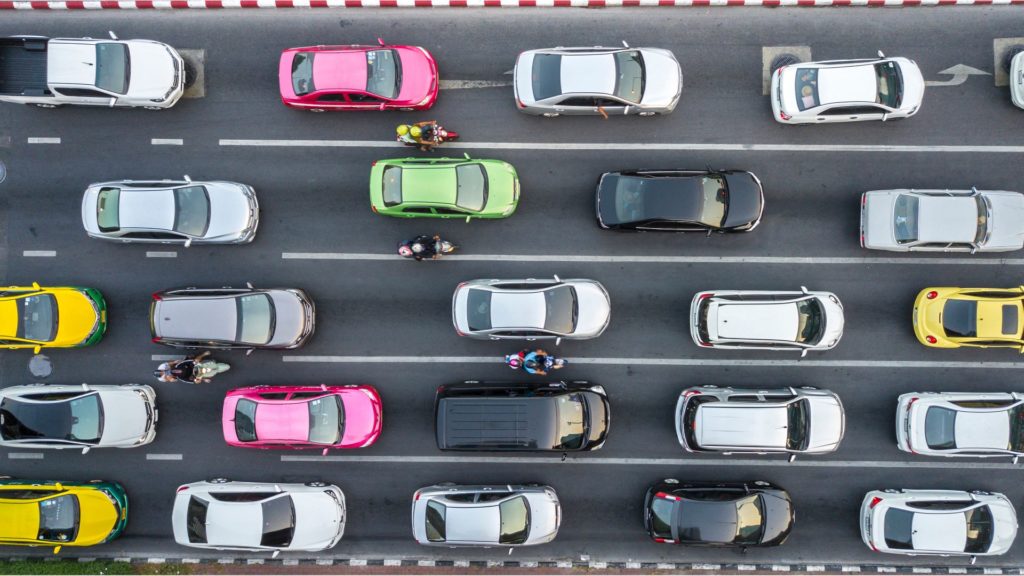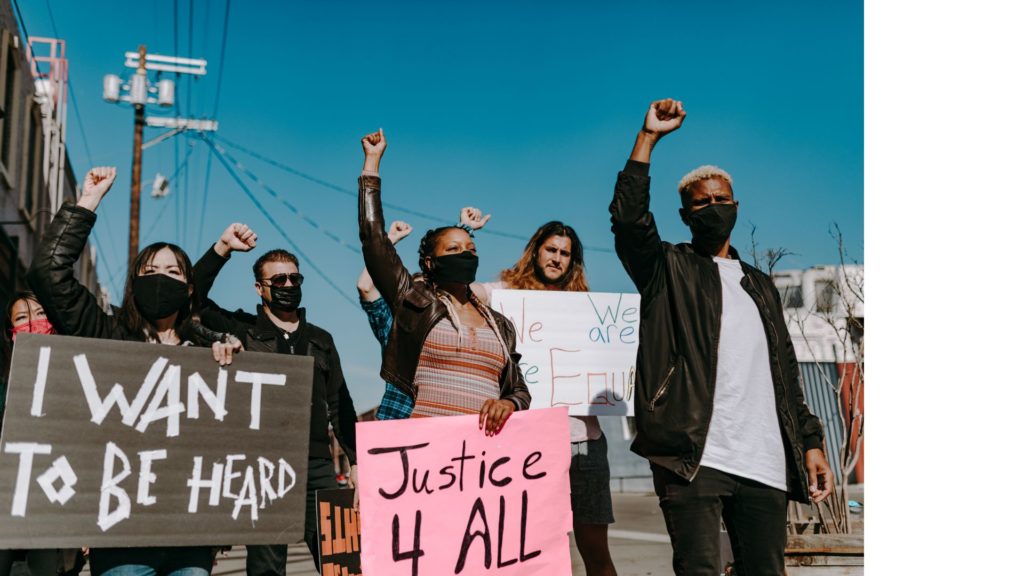
How do you do your shopping? Do you go to a supermarket a couple of times a month, or do you go to different shops (greengrocers, bakers, fishmongers, etc.)? Everyone and everything are rushing everywhere, but it is clear how difficult it is to reconcile family, work and social life -not to mention the impossibility of having time for personal care. In addition, since the opening of large shopping centres and the existence of housing in places far from the urban centre of the municipality, we increasingly stop going to the local shops and end up buying products that are neither local nor of proximity or quality. Everyone and everything are in a hurry, from the farming community that uses phytosanitary products, among others, to increase production to the distributors who, as long as there is business, are indifferent to the mode of transport of foodstuffs, and finally to the consumers, who will do their shopping saving time and money.
One of the big transformations that the future must witness is the containment of the ever-increasing spiral between production and consumption, which would otherwise lead to self-destruction. It has to be contained by “crushing” it to turn it into something as close as possible to a circle. The old pillars of the productive economy have to give way to the nuts: non-consumerist culture, maximum durability, and maximum recycling.
It seems that such a radical change should not be possible. But the germ of the consumer society -that is, chain production- is barely a century old, and it took a lot of disinformation to introduce and make planned obsolescence acceptable¹. Thus, a radical change was made, albeit in the opposite direction. What remains to be seen is whether we will be able to make the change again.
One of the fears this economic perspective raises is losing jobs. But in a production system oriented to come as close as possible to being circular, there will be a lot of work in repair shops, research centres for productive transformation, recycling plants (‘the new mines’), labour-intensive occupations with a low environmental impact (such as health, education, social welfare, leisure, culture)² … and other jobs we cannot even think of now.
But the fear we want to focus on is that of having to give up comfort. How will it affect us? And what about those who have not yet enjoyed the luxuries of the Western world?
What are comforts?

Convenient things or experiences, such as arriving by car to the door of where we are going. A different approach would be to use public transport to get quite close, moving in an urban environment without car congestion and with less pollution and noise.
We are so used to the former that the latter can seem more of an inconvenience. It is probably why around 70% of the inhabitants of Stockholm rejected the introduction of a congestion charge for car access in the city centre in 2006, in a referendum influenced by the media opposing the measure. The idea was to use the revenue from the charge to improve public transport, cycling and walking. After only half a year of testing it, more than half of the citizens already appreciated the advantages of the charge. Two years later, the alternative that would have aroused the opposition of 70% of the population would have been to withdraw the measureᵌ.
The notion of ‘comfort’ is very fickle. Many things are the way they are because, at some point, someone decided they should be so, and we are comfortable with them because we got used to them⁴. In the 1940s, Los Angeles had a spider’s web of tram lines; in 2016, there were two.
From “restricting comforts” to distributing the cake fairly
The planet and its natural resources are limited, and we all have equal rights to them. Therefore, they must be shared equitably, providing access to everyone and restricting the consumption level to sustainability.⁵
The public policies with the greatest potential for effectiveness are economic policies: prices, taxes, fiscal incentives, etc. Hitting the pocket never fails. One example would be the congestion charge we have already mentioned. Another is progressive tariffs on basic supplies: a price affordable to everyone for an elementary level of consumption and higher prices as consumption increases, even penalising those who exceed a sustainability threshold.
Another family of policies that is likely to be necessary is rationing. For example, the alternate day rule for vehicles with odd or even number plates is already in place in several large cities around the world.
People usually receive these types of regulations with reluctance. One of the typical objections is the alleged discrimination between high and low incomes in favour of the former, who, thanks to their purchasing power, can adapt the rules to their ‘convenience’. It is true that power -at the individual level, and above all, at the institutional and corporate level- allows for decisions that put comfort or self-interest ahead of or against the common good in a tacitly consented and often “invisible” or unremarked way. But it is precisely rationing and equity policies in general that punish these behaviours transparently and democratically, and in some cases also transfer economic resources from the private to the public sphere in a fair manner and for the benefit of everyone.
Another recurrent objection is that individual rights and freedoms are restricted. Important points of the argument against this idea would be:
- ‘Absolute individual freedom’ does not exist, nor is it desirable in any society. We all want traffic lights; the absence of a traffic code is a nightmare.
- From liberal ideological thought, we can borrow the Harm Principle: “Everyone has the right to do what he wants, as long as they do not harm other people”.
- Individual freedom cannot compromise collective well-being. The freedom to use a car, which is not a right, must be restricted if it compromises others’ rights to travel (freedom of movement) and live in a healthy environment, which are universal human rights.
- A comprehensive and coherent regulatory framework, perceived as fair and effective, changes support, acceptability and sympathy for public policies; the Stockholm case is an example. Obligations or bans (i.e. the restriction of individual freedoms) based on the civil duty to respect individual and collective rights move from rejection or contempt to applause after their introduction. What were the most common comments about smoking inside public places on the vigil and the day after it was banned?
Each person stands at one point or another on the line between the extremes of ‘selfishness’ and ‘solidarity’ according to their sensibilities, and positions vary according to the social and political environment of the moment. In most cases, however, the actors loudly advocate the supremacy of the common good and universal rights.
Three required areas of change

Regulations for sustainability and equity have to be conceived and implemented by the legislative and executive branches of government. Yet, economic powers -which in capitalist logic make self-interest prevail- often dominate such political institutions. That is why, so far, there are still not enough decisive questions on the table and even fewer answers offered. The recent case of the COP25 climate conference in Madrid is a very stark example.
In the face of the ineffectiveness of the government power structures, it is necessary:
- A democratic regeneration with an emphasis on transparency in all public affairs and the adjustment of state structures to the role for which they were originally conceived.
- An organised civil society that represents the citizens’ opinions, one thatdemands a democratic regeneration and sustainability and equity policies from the political powers. A civil society that makes demands with determination, based on dignity and ethics. How dare you?
- A citizenry that behaves consistently with finding a balance among individual and collective rights and sustainability while nurturing their satisfaction as individuals. It will thus provide a test bed for new practices to validate and refine them and an example to follow. The transformative power of this individual sphere is not minor: social psychology tells us that change spreads more by imitation than by awareness and that experimenting with new practices activates processes that help change the context, which in turn helps change practices further, thus creating a virtuous circle.
Action in all three spheres is necessary and powerful, and the sum of it even more so.
Notes
¹ See, for example, the article “Com menys duri, millor. Quan l’absurditat sembla tenir sentit” [The shorter the better. When absurdity seems to make sense], published in Opcions n. 24 (winter 2007-08).
² Ecological economist Tim Jackson calls it the ‘Cinderella economy’ in his book Prosperity without Growth, where he puts forth grounds for tomorrow’s economy.
ᵌ David Meyer: Congestion pricing was unpopular in Stockholm —until people saw it in action, a StreetsBlogNYC (28 November, 2017). Last data available on public support of the measure are from 2014.
⁴ You can find a complete reflection on habit changes in the article ‘Canviar comportaments: entre la mandra i la seducció’ [Changing Behaviours: Between Sloth and Seduction], in Opcions n. 34 (summer 2010).
⁵ Included in the notion of “sustainable environmental space” developed by the economic historian Enric Tello. You can read, among others, his article L’aigua: un dret o un servei? [Water: Right or Service?] published in Medi Ambient, tecnologia i cultura n. 36 (October, 2005).
About the author
Montse Peirón holds a PhD in computer science and is researcher in conscious consumerism and in Opcions, a magazine she founded and directed until 2015. In addition, she collaborates with the Universitat Oberta de Catalunya writing learning materials on engineering informatics.
This text is based on several texts previously published in Opcions, some of them authored by Álvaro Porro, and an interview with Olga Margalef.
This article includes editions by Anna Garcia Tortosa (Fundesplai)

